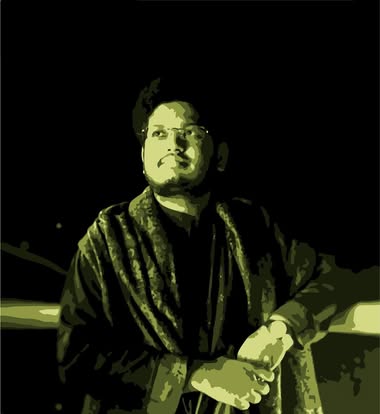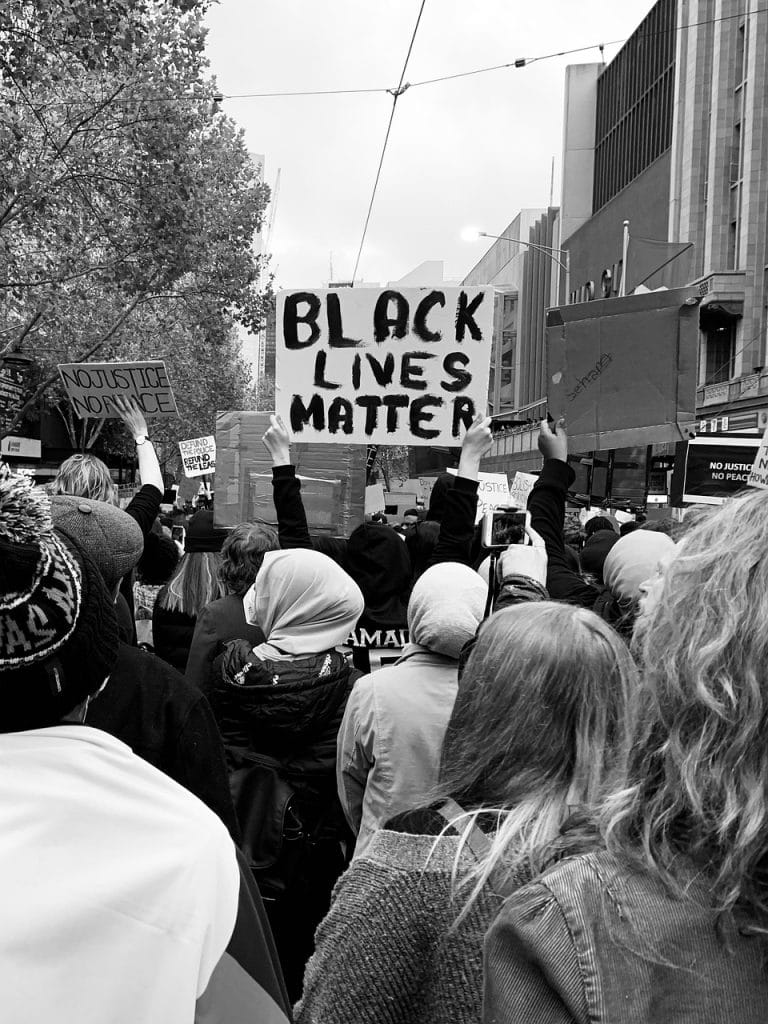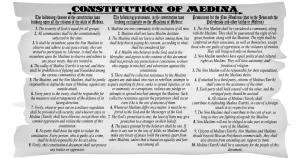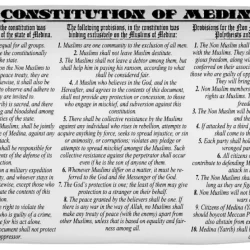Are you tired of being told what to think and how to act by the woke brigade? Do you feel like you can’t say anything without being accused of racism, sexism, homophobia, or some other -ism? If so, you’re not alone. Woke culture is a phenomenon that has taken over the world in recent years. Woke culture is a form of social justice activism that claims to fight for the rights and dignity of marginalized groups, but in reality, it does the opposite. It silences dissenting voices, creates division and resentment, and imposes a narrow and rigid ideology on everyone.
Woke culture is everywhere. It’s in the media, the education system, the entertainment industry, the corporate world, and even the government. It’s behind movements like Black Lives Matter, Me Too, and Cancel Culture. It’s behind slogans like “Stay woke”, “check your privilege”, and “Believe all women”.
In this article, I will try to define “woke culture” as a term that means social awareness, being alert to social issues, racism, discrimination, and injustice. I will also explain the origins of the term in African-American Vernacular English (AAVE) and its popularization by Black Lives Matter (BLM) activists. Moreover, I will mention some of the goals and agendas of the woke culture, such as dissolving the nuclear family, abolishing capitalism, eliminating religion, re-writing the constitution, and raising children gender-neutral. The main purpose and notion of this article is to provide an analytical and critical discussion of the definition and nature of Woke Culture, and the complex aspects of woke culture in politics and society.
What is Woke Culture?
Woke culture is a complex and multifaceted movement, and there is no single definition of what it means to be woke. However, at its core, woke culture is about challenging injustice and working to create a more just and equitable world.
According to Merriam-Webster, “woke” is an adjective that means “aware of and actively attentive to important societal facts and issues (especially issues of racial and social justice)”. The term “woke” originated in the 1960s among African American activists who used the phrase “stay woke” to keep issues facing society, particularly racism, in public discussion. Being “woke” means being aware of structural inequalities in society and being hyper-aware of one’s role in those inequalities. A woke society means that people are aware of social injustices and want to do something about it.
What is America’s Blackwater? How does it terrorize the World?
The term “woke” has been used by both Black and White activists to fight injustice since the early 1900s. However, it gained more prominence in the 2010s, especially after the 2014 Ferguson protests, where BLM activists used the term to raise awareness about police shootings of African Americans. BLM is a movement that campaigns against violence and systemic racism toward Black people. BLM activists have used social media platforms such as Twitter to spread their message and mobilize supporters using hashtags such as #BlackLivesMatter, #SayHerName, #ICantBreathe, and others.
Woke culture is a social and political movement that seeks to challenge discrimination and oppression in all its forms. It is not limited to racial issues but also encompasses other forms of marginalization such as sexism, homophobia, transphobia, Islamophobia, xenophobia, and more. Woke culture advocates for diversity, inclusion, equity, and justice for all people regardless of their identity. Woke culture also criticizes the dominant narratives and structures that uphold the status quo and perpetuate oppression.
What are the agenda and goals of Woke Culture?
The term “woke” is used to describe people who are aware of and actively work to challenge social injustice and inequality. Woke culture is a movement that seeks to create a more just and equitable society for all people, regardless of race, gender, sexual orientation, or other identity markers. It includes Raising awareness of social injustice, Challenging stereotypes, and discrimination, and Building a more just and equitable society.
The agenda and goals of woke culture vary depending on the individual or group involved, but some common goals include:
Dissolving the nuclear family
Woke culture challenges the traditional notion of family as a heterosexual couple with biological children. It argues that this model is patriarchal, heteronormative, and oppressive. It supports alternative forms of the family such as single parents, same-sex couples, polyamorous relationships, adoptive parents, foster parents, and more. It also advocates for communal parenting where children are raised by a network of caregivers rather than by their biological parents alone.
Abolishing capitalism
Woke culture views capitalism as a system that exploits workers creates inequality, destroys the environment, and fuels consumerism. It argues that capitalism is incompatible with social justice and human rights. It supports socialism or communism as alternative economic systems that prioritize collective ownership, redistribution of wealth, social welfare, and environmental sustainability.
Eliminating religion
Woke culture views religion as a source of oppression, violence, and intolerance. It argues that religion is used to justify discrimination, persecution, and war. It supports secularism or atheism as alternative worldviews that promote reason, science, and humanism.
Re-writing the constitution
Woke culture views the Constitution as a document that reflects the interests and values of the founding fathers who were mostly white men who owned slaves. It argues that the Constitution is outdated, flawed, and biased. It supports revising or replacing the constitution with a new one that reflects the diversity and needs of the current society.
Raising children gender neutral
Woke culture challenges the binary notion of gender as male or female. It argues that gender is a social construct that limits people’s expression and identity. It supports gender fluidity or non-binary gender as alternative ways of being. It also advocates for raising children without imposing gender stereotypes or expectations on them.
These goals are not only controversial but they are against the very nature we belong to. They may challenge but have no logical stands against the established norms and values of civilized society. Woke cultures do not share the same vision or perspective as civil society. Civilized people see these goals as radical, unrealistic, or harmful. People also feel threatened or offended by these goals because they perceive them as an attack on their beliefs or identity.
Who are China’s Uighur Minority? What’s happening with them?
Some of the achievements and successes of woke culture include:
– The Black Lives Matter movement has raised awareness about police brutality and racial injustice against Black people and has demanded accountability and reform.
– The MeToo movement has exposed sexual harassment and assault against women in various industries and has empowered survivors to speak up and seek justice.
– The LGBTQ+ rights movement has advocated for marriage equality, anti-discrimination laws, transgender rights, health care access, and visibility for LGBTQ+ people.
– The environmental movement that has alerted the world about the dangers of climate change and has urged governments and corporations to take action to reduce greenhouse gas emissions and protect the planet.
– The immigration reform movement has defended the rights and dignity of immigrants and refugees and has opposed the policies and practices that separate families, detain children and deport people.
– The indigenous rights movement that has fought for the recognition and protection of indigenous lands, cultures, languages, and sovereignty.
– The disability rights movement has demanded accessibility, inclusion, and respect for disabled people.
These are just some examples of how woke culture has made a positive impact on our world. But the negative aspects of woke culture destroy the positive aspects. For example, how can it be justified the concept that the child you gave birth to is actually in the wrong human body, it should not be binary, or your male child is stuck in the female body, so it should be corrected by medical treatment! How come? Eve, they incorporate the idea that you, the biological parents have no right to guide your child when they manipulate and brainwash the child into a dumb who can identify himself as whatever he wishes!
A few months back Daily Mail reports that a Transgender killer who changed from male to female and now identifies as a baby in Scottish prison at the heart of Sturgeon row says she fears she would not survive if moved to a men’s jail. What should you do now?
Woke culture is a complex phenomenon that has many facets and implications. It is not a monolithic entity that can be easily defined or dismissed. It is a dynamic movement that can evolve or change over time. It is a contested concept that can elicit different reactions from different people.
Therefore, instead of simply accepting woke culture as a whole, we should engage with it critically and constructively. We should analyze critically and constructively its agendas but also recognize its contribution. We should be open-minded but also discerning. We should be woken but also wise.
What does it mean to be a Woke Person?
What does it mean to be a woke person in today’s world? This is a question that many people are asking themselves as they encounter the term “woke” in various contexts. Woke is a slang word that originated from African American Vernacular English and means being aware of social and racial injustice. It has since expanded to include other forms of oppression and discrimination, such as sexism, homophobia, transphobia, xenophobia, and more.
Being woke is not just a state of mind, but also a way of life. It involves adopting a certain political stance, language, behavior, and identity that signals support for progressive causes and opposition to oppression and injustice. Some examples of being woke are:
– Celebrities like Beyoncé, Colin Kaepernick, Lizzo, and John Legend, use their fame and influence to speak out against racism, police brutality, body shaming, and other issues that affect marginalized communities.
– Politicians like Alexandria Ocasio-Cortez, Bernie Sanders, Ilhan Omar, and Elizabeth Warren, advocate for policies that address climate change, health care, immigration, and economic inequality.
– Activists like Greta Thunberg, Malala Yousafzai, Emma González, and Tarana Burke, organize and mobilize people to demand action on environmental justice, education rights, gun control, and sexual assault prevention.
– Ordinary people like you and me, who educate ourselves and others about the history and current realities of oppression and privilege, who challenge our own biases and prejudices, who listen to and amplify the voices of those who are marginalized and oppressed, and who take action to create positive change in our communities and society.
How did Woke Culture come to rise?
Woke culture is a term that refers to a collective awareness of social injustices and a commitment to fight for social change. It is often associated with progressive or leftist movements and ideologies that challenge racism, sexism, homophobia, transphobia, xenophobia, classism, and other forms of oppression. Woke culture is also seen as a form of identity politics that emphasizes the experiences and perspectives of marginalized groups.
The term “woke” has a long history in African-American Vernacular English (AAVE), where it means “alert to racial prejudice and discrimination”. According to Wikipedia, the phrase stay woke has a history in AAVE as far back as the 1930s, in some contexts referring to an awareness of the social and political issues affecting African Americans. The phrase was uttered in lyrics of recordings by Lead Belly in the mid-20th century and post-millennium by Erykah Badu. In her 2008 song “Master Teacher”, Badu sings: “I stay woke / Everybody else is sleeping / I stay woke / Everybody else is blind”.
How minorities are being oppressed in India?
The term “woke” gained more popularity and visibility in the 2010s, thanks to the rise of social media platforms such as Twitter. Twitter became a space where people could share their opinions, experiences, and information on various topics, including social justice issues. Twitter also enabled people to connect with others who shared their views and values, forming online communities and networks. Some of these communities used hashtags such as #BlackLivesMatter, #MeToo, #NoBanNoWall, #SayHerName, #OscarsSoWhite, #TimesUp, and #ClimateStrike to raise awareness and mobilize action on specific causes.
One of the events that sparked the widespread use of the term “woke” was the 2014 Ferguson protests. The protests erupted after the police shooting of Michael Brown, an unarmed Black teenager, in Ferguson, Missouri. The protests were met with heavy militarized police response and media coverage. Many people took to Twitter to express their outrage and solidarity with the protesters, using hashtags such as #Ferguson and #StayWoke. The latter became a slogan for the Black Lives Matter movement, which emerged as a powerful force for racial justice and police accountability.

The term “woke” also expanded its meaning to include other forms of social injustice beyond racism. For example, the #MeToo movement, which started in 2017 after allegations of sexual harassment and assault against Hollywood producer Harvey Weinstein surfaced, used the term “woke” to describe people who were aware of and opposed to sexual violence against women. The movement also exposed the pervasive sexism and misogyny in various industries and institutions.
The term “woke” also became a way to criticize or praise political figures and celebrities based on their stance on social issues. For example, former President Barack Obama was often praised as a “woke” leader who championed diversity, equality, and human rights. On the other hand, former President Donald Trump was often denounced as an “anti-woke” leader who promoted bigotry, division, and authoritarianism. The contrast between these two presidents also reflected the polarization of American society along ideological lines.
The term “woke” also faced challenges and criticisms from various quarters. Some people argued that being “woke” was not enough to bring about real change; it required more concrete actions and solutions. Some people also accused “woke” activists of being too sensitive, intolerant, or hypocritical; they claimed that “woke” culture was a form of virtue signaling or cancel culture that stifled free speech and diversity of thought. Some people also questioned the authenticity or sincerity of “woke” expressions; they coined terms such as “woke-washing” or “woke capitalism” to describe companies or celebrities who used “woke” rhetoric or imagery to appeal to consumers or audiences without making meaningful changes or contributions.
The term “woke” also transcended its American origins and spread to other parts of the world. The term was adopted by people who faced similar or different forms of oppression or discrimination in their contexts. For example, in Hong Kong, protesters used the term “woke” to describe their awareness and resistance against China’s encroachment on their autonomy and rights. In India, activists used the term “woke” to challenge casteism, communalism, sexism, and other social evils.
Is Modi scared of India’s textbook history?
The term “woke” also evolved as new events and issues emerged. For example, in 2020, the Covid-19 pandemic exposed the deep inequalities and vulnerabilities that affected many people around the world. The pandemic also highlighted the importance of solidarity and cooperation among different groups and nations to overcome a common threat. The pandemic also inspired new forms of activism and creativity that used online platforms or alternative spaces to express their demands and visions.
Critical Analysis of Woke Culture
Woke culture is a complex and dynamic phenomenon that reflects the changing realities and aspirations of many people who seek social justice and political change. It is a term that has a rich history and a diverse meaning that can vary depending on who uses it or how it is used. It is a term that can inspire hope or provoke controversy; it can unite or divide; it can empower or oppress. It is a term that invites us to stay awake to what is happening around us and within us; it invites us to question our assumptions and challenge our biases; it invites us to listen to other’s stories and share our own; it invites us to act with courage and compassion.
Positive aspects
Woke culture is a social and political movement that seeks to challenge discrimination and oppression in all its forms. Being “woke” means being aware of structural inequalities in society and being hyper-aware of one’s role in those inequalities. A woke society means that people are aware of social injustices and want to do something about it.
One of the positive aspects of woke culture is that it has brought attention to the systemic and institutionalized forms of oppression that affect many people in our society. Woke culture has exposed the hidden biases, stereotypes, prejudices, and discrimination that shape our culture, politics, media, education, economy, and health care. Woke culture has also challenged the dominant narratives and perspectives that often erase or marginalize the voices and experiences of people of color, women, LGBTQ+ people, immigrants, refugees, indigenous people, disabled people, and other oppressed groups. Woke culture has created a space for dialogue, debate, and education on these issues and has encouraged people to listen and learn from each other.
Another positive aspect of woke culture is that it has motivated people to take action and make a difference in their communities and beyond. Woke culture has inspired people to join social movements, organize protests, sign petitions, donate money, volunteer time, boycott products, support causes, create art, write blogs, make podcasts and videos, and use social media to spread awareness and mobilize others. Woke culture has also fostered a sense of solidarity and allyship among people who share common goals and values. Woke culture has shown that people can work together across differences and overcome divisions to achieve social change.
A third positive aspect of woke culture is that it has celebrated diversity and inclusion in our society. Woke culture has recognized and valued the unique identities, cultures, histories, and contributions of various groups and individuals. Woke culture has promoted respect and appreciation for difference and has challenged the norms and expectations that limit people’s choices and opportunities. Woke culture has also empowered people to express themselves authentically and confidently without fear of judgment or backlash. Woke culture has shown that diversity is a strength and a source of creativity and innovation.
A simple guide to What is happening in Sudan
Woke culture may have a few positive aspects such as,
– It raises awareness about important societal issues that affect many people’s lives,
– It empowers marginalized groups to speak up for their rights and dignity
– It promotes diversity, inclusion, equity, and justice for all people regardless of their identity
– It encourages critical thinking and questioning of dominant narratives and structures
– It inspires social change and action toward a more fair and humane society.
Of course, there is still much work to be done to achieve true equality and justice for all. Woke culture is not perfect or flawless; it is constantly evolving and learning from its mistakes.
Negative Aspects
Woke culture is a term used to describe a social movement that advocates for social justice and equality. It is often associated with the promotion of empathy, inclusivity, and awareness of diverse perspectives.
Woke culture has been praised for its positive impact on society, such as raising awareness about important social issues, inspiring activism, and promoting diversity, inclusion, and empowerment. However, woke culture has also been criticized for its negative aspects, such as polarization, intolerance, censorship, cancel culture, virtue signaling, performative allyship, identity politics, and wokeness fatigue.
One of the most common criticisms of woke culture is that it is divisive. Woke culture often focuses on identity politics, which can lead to people feeling like they are being excluded or attacked because of their race, gender, sexual orientation, or other identity markers. This can create a sense of division and resentment, which can make it difficult to have productive conversations about important social issues.
For example, a 2021 study by the Pew Research Center found that Americans are increasingly divided along racial and partisan lines. The study found that white Americans and black Americans have very different views on a range of issues, including race relations, police brutality, and affirmative action. This division makes it difficult to have productive conversations about these issues, as people are often talking past each other.
Another common criticism of woke culture is that it is intolerant. Woke culture often promotes a set of beliefs that are considered to be “woke,” and those who do not subscribe to these beliefs are often labeled as “unwoke” or “woke-scolds.” This can create a climate of intolerance where people are afraid to express their own beliefs for fear of being ostracized or attacked.
For example, in 2020, a professor at the University of Toronto was forced to resign after he tweeted that he was not “woke” on the issue of transgender rights. The professor’s tweet was met with a wave of criticism from woke activists, who accused him of being transphobic. This incident highlights the intolerance that can be found in woke culture.
Woke culture has also been criticized for its use of censorship. Woke culture often advocates for the removal of content that is considered to be offensive or harmful. This can lead to a climate of self-censorship, where people are afraid to express their thoughts and opinions for fear of being punished.
For example, in 2021, a book by J.K. Rowling was removed from the shelves of Barnes & Noble after Rowling made comments that were considered to be transphobic. This incident highlights the power that woke culture has to censor content.
Cancel culture is another common criticism of woke culture. Cancel culture is the practice of withdrawing support for someone or something after they have done or said something that is considered to be offensive or harmful. This can have a devastating impact on the person or thing that is canceled, and it can lead to a climate of fear and intimidation.
For example, in 2020, a comedian was fired from his job after he made a joke that was considered to be offensive to women. This incident highlights the power that cancel culture has to ruin people’s lives.
Virtue signaling is another common criticism of woke culture. Virtue signaling is the act of publicly expressing one’s support for a cause or belief to gain social approval. This can be seen as a way of avoiding real action on important social issues, and it can also be seen as a way of signaling one’s superiority over others.
For example, a celebrity may post a photo of themselves on social media with a sign that says “Black Lives Matter.” This may seem like a positive act, but it is important to ask whether the celebrity is doing anything to help the Black Lives Matter movement. If they are not, then their post is simply virtue signaling.
Performative allyship is another common criticism of woke culture. Performative allyship is the act of supporting a cause or belief without actually doing anything to help. This can be seen as a way of pretending to care about important social issues without actually doing anything to make a difference.
For example, a company may release a statement saying that they support the Black Lives Matter movement. However, if the company does not take any steps to support the movement, then its statement is simply performative allyship.
What is America’s Blackwater? How does it terrorize the World?
Identity politics is another common criticism of woke culture. Identity politics is the practice of organizing and mobilizing people around their shared identities, such as race, gender, sexual orientation, or other identity markers. This can be seen as a way of dividing people and making it difficult to find common ground.
Wokeness fatigue is another common criticism of woke culture. Wokeness fatigue is the feeling of being overwhelmed or exhausted by the constant focus on wokeness. This can lead to people tuning out or even becoming hostile to woke culture.
Woke culture has alienated and antagonized some people who feel excluded, attacked, silenced, or misunderstood by the woke agenda. These people often feel like they are being told that their beliefs and values are wrong, and they feel like they are being excluded from society. This can lead to feelings of resentment and anger, and it can make it difficult to have productive conversations about important social issues.
Dissolving the nuclear family
The nuclear family is a traditional family unit consisting of a married couple and their biological or adopted children. Woke culture has been criticized for its goal of dissolving the nuclear family. Some people argue that the nuclear family is a cornerstone of society and that its dissolution would have negative consequences for children, such as increased rates of poverty, crime, and mental health problems.
For example, a 2015 study by the American Enterprise Institute found that children who grow up in single-parent households are more likely to live in poverty, commit crimes, and drop out of school than children who grow up in two-parent households. The study also found that children who grow up in single-parent households are more likely to experience mental health problems, such as depression and anxiety.
How far Freedom of Expression is appropriate?
Eliminating religion
Woke culture has also been criticized for its goal of eliminating religion. Some people argue that religion is a source of comfort and support for many people and that its elimination would leave a void in their lives. They also argue that religion plays an important role in society, providing moral guidance and promoting social cohesion.
For example, a 2018 study by the Pew Research Center found that 70% of Americans believe that religion is very or somewhat important in their lives. The study also found that religion plays an important role in many aspects of American life, such as providing moral guidance (67%), helping people cope with difficult times (64%), and promoting social cohesion (61%).
Raising children gender neutral
Woke culture has also been criticized for its goal of raising children gender-neutral. Some people argue that gender is a biological reality and that it is important to teach children about their gender identity from a young age. They argue that raising children gender-neutral can lead to confusion and identity issues.
For example, a 2019 study by the University of California, Los Angeles found that children who are raised gender-neutral are more likely to experience gender dysphoria, a condition in which a person’s gender identity does not match their biological sex. The study also found that children who are raised gender-neutral are more likely to experience bullying and discrimination.
A few months back Daily Mail reports that a Transgender killer who changed from male to female and now identifies as a baby in the Scottish prison at the heart of Sturgeon row says she fears she would not survive if moved to a men’s jail. What should you do now?
The goals and agendas of woke culture such as dissolving the nuclear family, eliminating religion, and raising children gender neutral are very much delusional, politically motivated, illogical, inappropriate, impracticable, unnatural, inhuman, and dehumanizing. These goals are not acceptable to society worldwide because they are radical and disruptive, malice. They will not only destroy but also fundamentally change the way society is structured, and they would harm many people.
What is cultural aggression? How does it threaten world cultural diversity?
Apart from social issues like Black Lives Matter or secularism, it does not have anything to offer but destroy the structure of civilized society. It can be divisive and polarizing among different groups who may not agree on certain issues or solutions. The woke culture does not respect other’s opinions, it is intolerant or dismissive of other viewpoints or experiences that do not align with its own. It is dogmatic or self-righteous in its claims or demands. It is superficial in its expressions or actions. It is also true that woke culture is co-opted or exploited by corporations or politicians who use it for their interests or agendas.















